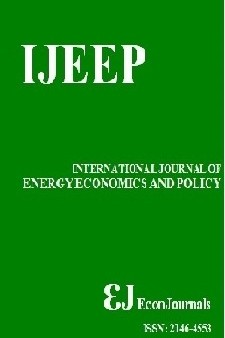Mihail Nikolaevich DUDİN, еvgenia еvgenevna FROLOVA, Valentina Nikolaevna SİDORENKO, Ekaterina Alexandrovna POGREBİNSKAYA, İrina Vladimirovna NİKİSHİNA
Energy Policy of the European Union: Challenges and Possible Development Paths
Energy Policy of the European Union: Challenges and Possible Development Paths
Energy policy is an important part of economic, environmental, and overall public policy of each country. For a long time, energy policy is being one of the most significant issues of each state and depends on many factors, including the availability of fossil energy sources and the geographic location of the country, access to natural resources, as well as political relations between energy exporters and importers. The article aims at analyzing the views of foreign authors on the assessment of the energy policy in the European countries in the context of further diversification and security of fuel supply, energy market liberalization, and renewable energy development. The article discusses the current state of energy policy of the EU member countries. The main tenet of this policy is the requirement to resolve the problems existing in the energy sector to ensure energy security. The EU countries import more than half of all energy consumed, and reducing this dependence provides for the completion of the gas market liberalization, the deployment of low-carbon technologies, renewable energy development, as well as enhancement of energy efficiency and energy saving.The authors analyze the energy policies of France and Germany, which are leaders in European energy policy. Besides, the article presents historical analysis of changes in the EU energy policy vector, as well as the main provisions of the new energy strategy to resolve European energy security problem. The article is prepared based on the analysis of works of foreign and Russian authors including politicians, officials, and researchers, as well as analysts and experts in the energy industry.
Keywords:
European Union, Energy Policy Energy Security, Fuel Sources, Energy Efficiency, Energy Conservation, Energy Intensity,
- Başlangıç: 2011
- Yayıncı: İlhan ÖZTÜRK
Sayıdaki Diğer Makaleler
Merve Karacaer-Ulusoy, Ayhan Kapusuzoglu
Geopolitics of the Republic of Turkey’s Energy Policy
Ivan A. Kapitonov, Vitaly G. Korolev, Anatolii A. Shadrin, Aleksei A. Shulus
Lucky Nugroho, Wiwik Utami, Taufik Akbar, Willy Arafah
Marzieh Rahimi, Abbas Alavi Rad
Hlalefang Bernedict Khobai, Pierre Le Roux
Elena Vladimirovna Pavlova, Irina Albertovna Duborkina, Antonina Pavlovna Sokolova, Irina Gennadiyevna Doronkina, Elena Evgeniyevna Konovalova
The Impact of Oil Price on the Growth, Inflation, Unemployment and Budget Deficit of Vietnam
Nguyen Thi Ngoc Trang, Tran Ngoc Tho, Dinh Thi Thu Hong
Barriers and Policy Drivers to Energy Efficiency in Energy Intensive Turkish Industrial Sectors
